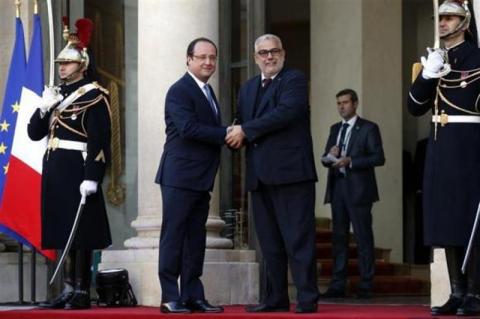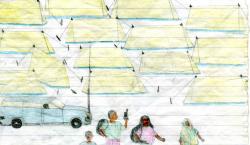Advertisement
Morocco Suspends Judicial Cooperation With Ally France
RABAT (Reuters) - Morocco said it had suspended judicial cooperation agreements with France in a growing diplomatic row with its former colonial ruler over allegations of human rights abuses.
President Francois Hollande spoke to the Moroccan king earlier this week to try to calm the rare row between France and Morocco, an ally which has faced criticism from rights groups over police abuses, press freedom and judicial independence.
Rabat on Saturday summoned the French ambassador after French police went to the Moroccan Embassy in Paris seeking to question the head of the domestic intelligence service over torture allegations, following lawsuits filed against him in France by Moroccan activists.
"Given that French police were sent with a judicial notice for a Moroccan official at the ambassador's residence in a provocative manner, it has been decided to suspend all judicial cooperation agreements between the two countries until a review is conducted," Morocco's Justice Ministry said in a statement.
France's foreign minister had earlier tried to end the row.
"There has been a certain tension in the last few days," Laurent Fabius said after speaking to the Moroccan foreign minister. "We had useful explanations, regretted the incidents that could have taken place and deplored the direction things took. I hope all that will be in the past, if it isn't already."
In 2012, the United Nations said torture against people suspected of national security crimes in Morocco was systematic and urged it to end ill treatment in its prisons and police detention centres. U.S.-based Human Rights Watch has urged Morocco to investigate accusations that police tortured pro-democracy activists to force false confessions.
Spanish actor Javier Bardem has also angered Morocco by quoting a French ambassador as saying Paris chose to ignore human rights abuses in Western Sahara, a former Spanish colony that Morocco annexed in 1975.
France has long supported Rabat's position on Western Sahara due to historical and business relations, despite allegations of abuses by rights groups.
French newspaper Le Monde quoted Bardem on February 20 as telling a Paris news conference that a French ambassador had told him: "Morocco was a mistress with whom we sleep every night even if we aren't especially in love with her, but that we must defend. In other words, we turn a blind eye."
Foreign Ministry spokesman Roman Nadal admitted for the first time on Wednesday that the actor had met France's U.N. ambassador Gerard Araud in 2011 to discuss the Western Sahara, but said: "Our U.N. representative met Javier Bardem at his request in 2011. He did not say what was attributed to him."



















Add new comment